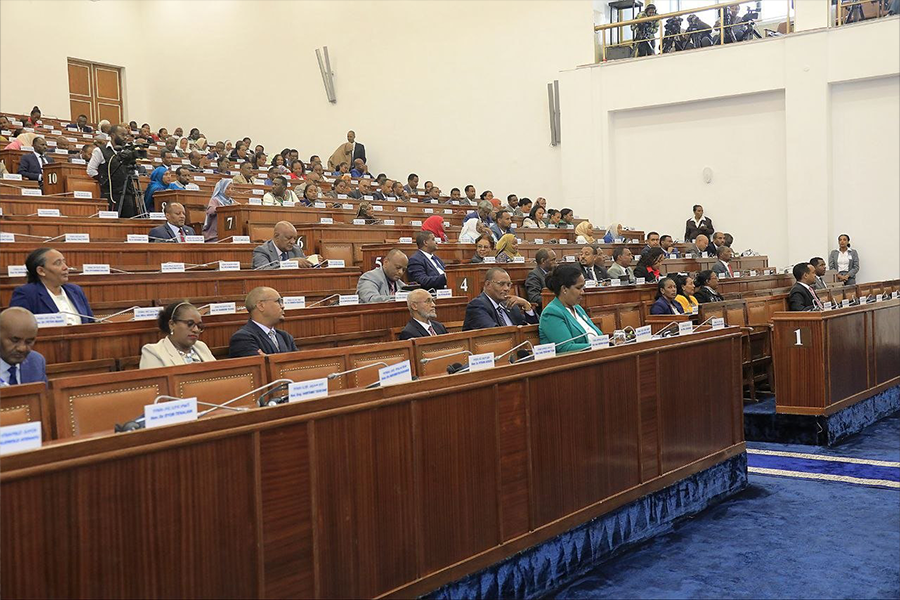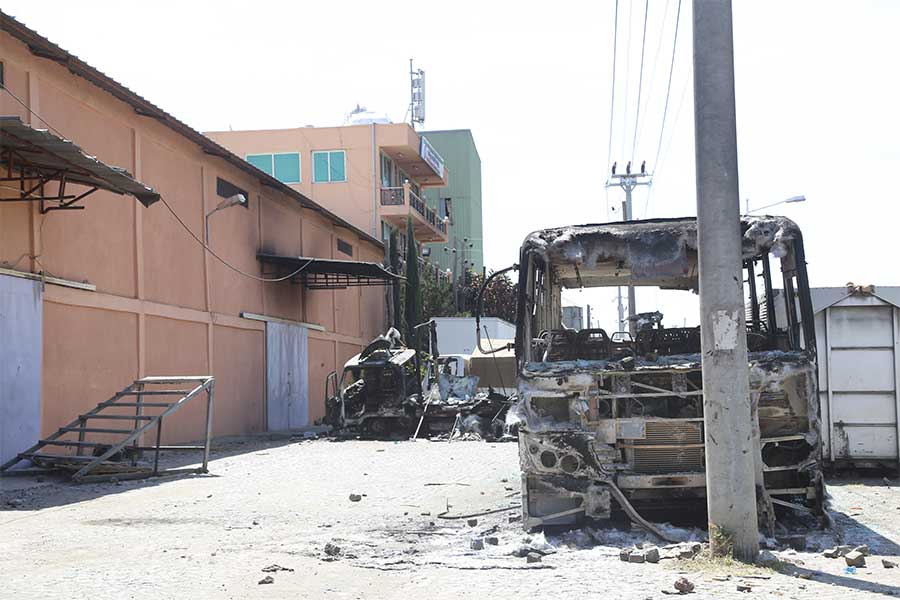
My Opinion | Nov 26,2022
Jul 26 , 2025
By Kidist Yidnekachew
A recent incident in my residential compound reinforced a growing sense of unease: our society struggles with the idea of the law. Rather than treating rules as shared agreements for mutual benefit, many appear more interested in spotting loopholes. This instinct to circumvent the spirit of the law undermines trust and breeds inconsistency. It signals a deeper problem in how rules are viewed, understood, and enforced.
Not all laws are clear or intuitive. Some raise more questions than answers, making their original intent difficult to discern. One often wonders whether certain rules exist to serve the public or to complicate daily life. The gap between intent and execution frequently distorts the rule’s effect. Well-intentioned laws can become burdensome in practice. Poor implementation, red tape, and vague enforcement reduce credibility. People begin to see regulations as hurdles rather than protections. When enforcement adds frustration instead of resolution, cynicism takes root.
Another common issue is the bottom-up application of rules. Too often, complaints become stuck at the lower rungs of institutional hierarchies. One might attempt to lodge a serious concern, only to be blocked by security guards or clerks with no real authority. This creates stagnation. Gatekeepers operate without oversight, sometimes dismissing valid concerns for arbitrary reasons. When institutions function like this, frustration and mistrust accumulate—not for lack of intent, but for lack of access.
At the heart of this dysfunction is a troubling emotional climate. Many seem ready to erupt at the slightest provocation. Misunderstandings that could be calmly resolved often spiral into verbal abuse or near-violence. Escalation has become the default, not the exception.
This brings me back to the episode in my compound. A group of young men arrived by taxi and entered one of the houses. A few minutes later, they emerged carrying a doghouse and attempted to load it into the taxi. At this point, the security guards intervened.
These guards, new to the job, demanded a permission slip. The young men had none, prompting a confrontation. From a window above, a woman—presumably a relative—shouted at the guards to let them pass. Her raised voice turned what could have been a minor misunderstanding into a spectacle.
The guards seemed more loyal to the compound committee than to the residents themselves. Fearing disciplinary action, they insisted on protocol. One phoned a committee member, who confirmed the item could be removed. Only then did the guards step aside.
But the situation did not end there. One of the young men, now agitated, launched into a tirade of insults, clearly trying to provoke a fight. The previously composed guard began to lose his temper. Caught nearby, I tried to intervene, urging restraint as the shouting intensified. Children watched in silent confusion.
The woman soon stormed down, face-to-face with the guards, berating them for denying her property’s removal. Tension thickened. Fortunately, the young men departed before the confrontation turned violent.
From a procedural standpoint, the guards weren’t entirely wrong. They were enforcing rules as they understood them. But once the resident had vouched for her family, some flexibility would have gone a long way. Common sense matters as much as technical compliance.
The item in question posed no real risk. Yes, theft does happen and vigilance is necessary. Still, the rigidity turned a minor issue into a public confrontation. The refusal to de-escalate transformed policy into provocation.
What played out in those twenty minutes reflects broader societal dynamics. Rules are necessary, but discretion is essential. Anger brews when people feel unheard, blocked by faceless systems or rigid protocol. That anger spills into confrontations that damage social cohesion.
Society does not need fewer rules, but better ones—clear, practical, and consistently applied. Yet even the best policy will fail without a culture of empathy. Mutual respect must undergird the law. Patience, dialogue, and flexibility should be social norms.
A culture that values de-escalation over dominance creates safer communities. When every encounter becomes a battle of wills, society suffers. Instead of entrenching positions, we must learn to listen and consider context. Conflict rarely solves what conversation could.
Ultimately, a harmonious society is not built solely by written codes. It is cultivated through shared values and the courage to act with humanity. Rules may govern behaviour, but compassion defines community. That, more than any regulation, is what keeps us whole.
PUBLISHED ON
Jul 26,2025 [ VOL
26 , NO
1317]


My Opinion | Nov 26,2022

Fortune News | Jun 05,2021

Fortune News | Jul 19,2025

Commentaries | Jun 19,2021

Fortune News | Dec 19,2018

Radar | Apr 03,2023

News Analysis | Jan 05,2020

Verbatim | Mar 16,2019

Fortune News | Dec 15,2024

Commentaries | Mar 19,2022

Photo Gallery | 170173 Views | May 06,2019

Photo Gallery | 160417 Views | Apr 26,2019

Photo Gallery | 150031 Views | Oct 06,2021

My Opinion | 136226 Views | Aug 14,2021





Dec 22 , 2024 . By TIZITA SHEWAFERAW
Charged with transforming colossal state-owned enterprises into modern and competitiv...

Aug 18 , 2024 . By AKSAH ITALO
Although predictable Yonas Zerihun's job in the ride-hailing service is not immune to...

Jul 28 , 2024 . By TIZITA SHEWAFERAW
Unhabitual, perhaps too many, Samuel Gebreyohannes, 38, used to occasionally enjoy a couple of beers at breakfast. However, he recently swit...

Jul 13 , 2024 . By AKSAH ITALO
Investors who rely on tractors, trucks, and field vehicles for commuting, transporting commodities, and f...

Oct 4 , 2025
Eyob Tekalegn (PhD) had been in the Governor's chair for only weeks when, on Septembe...

Sep 27 , 2025
Four years into an experiment with “shock therapy” in education, the national moo...

Sep 20 , 2025
Getachew Reda's return to the national stage was always going to stir attention. Once...

Sep 13 , 2025
At its launch in Nairobi two years ago, the Africa Climate Summit was billed as the f...

Oct 5 , 2025 . By NAHOM AYELE
In Meqelle, a name long associated with industrial grit and regional pride is undergo...

Oct 5 , 2025 . By BEZAWIT HULUAGER
The federal government is set to roll out a new "motor vehicle circulation tax" in th...

Oct 5 , 2025 . By NAHOM AYELE
The Bank of Abyssinia is wrestling with the loss of a prime plot of land once leased...

Oct 5 , 2025 . By BEZAWIT HULUAGER
The Customs Commission has introduced new tariffs on a wide range of imported goods i...